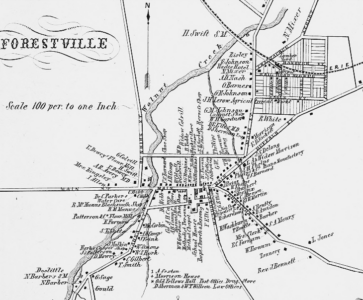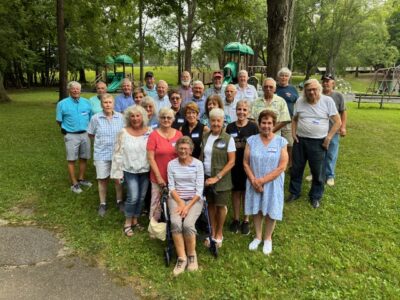The United States needs more thinkers, not followers
An article I published recently about public media received some blowback from a few self described conservatives (whatever that means in today’s world). The arguments stemmed from a report that the people in charge of NPR are exclusively Democrats, thereby discrediting my claim that public media is by and large well-researched and reliable, and by extension, not political. One critic also makes the claim that because the programs on PBS and NPR are not all that popular, why should the government fund them? Hmmm.
I was unable to verify or debunk the first of those arguments (I have no idea of how to go about researching the political affiliations of private citizens, and frankly the idea of it scares me). In response to my critics, I’ll put the argument in the larger context of American sociopolitical structure: the private v. the public sectors.
We all know about the separation of branches of government and how they are designed to prevent tyranny. Yet our freedom is also dependent on a balance between the public and the private sectors of the population at large. Generally speaking, Republicans are invested in private businesses and corporate rights. They promote free market policies and shun government regulations. Democrats represent general public interests and the responsibility of the government to serve its people.
They exist as polarizing entities, and as such provide a balancing pole in the tight rope walk of democracy. The emergence of either sector as all-powerful could have catastrophic consequences.
Here are two such scenarios:
In the public sector, the principles of serving the people have been progressively corrupted through bureaucratic bogs, welfare giveaways to curry votes, and the implementation of policies designed to promote sycophants and eliminate elements that might challenge status quo, thus dumbing down the system (nation).
People would feel less motivated, more entitled. Quality of life would diminish, leading to rebellion. Chaos would ensue, and a strongman leader who embraces none of the ideals of democracy or public servitude would emerge as the savior.
Imagine a nation controlled by the private sector – by businesses for whom profit is sacred; Greed is the way of God, and the Golden Calf has risen from the ashes. There would be no environmental regulations, turning parts of the world into toxic dumping grounds. The value of music or any art form would be determined exclusively by profitability. Assistance to the growing number of the sick and poor in overpopulated areas would come in the form of rations, without the protection of agencies like the FDA. Big Government (King) would control the information to which people have access.
These scenarios illustrate the unleashing of the worst aspects of human nature. They foreshadow a kind of dystopia imagined by Orwell, Bradbury, and others who have warned us about a future in which the common man is helpless against the powers-that-be. The only defense we have against the bad elements of ourselves is truth. And truth is revealed only through information, education, and compassion – the earmarks of public media.
Public media is a hybrid thing. Until its recent defunding by Trump, programming had relied in part on the government sponsored CPB (Corporate Broadcasting Co.) While mainline programming of NPR and PBS will survive due to support from influential donors, smaller member stations may not survive. It should be noted that nonprofit educational organizations, like universities, have provided much of the local funding. Thus, it should be no surprise that democrats and their public sector affiliates are favored.
Programs on NPR, such as “All Things Considered,” “Morning Edition,” “Planet Money,” “TED Radio Hour,” and “Wait Wait, Don’t Tell Me” provide information not readily available through other media sources. However, they are not necessarily great sources of entertainment. For mainstream American listeners, the content of NPR is not accessible, hard to relate to, or just plain boring.
Almost as unpopular with the mainstream is PBS. While “Sesame Street,” “Masterpiece Theater,” “Nova,” and “American Experience” remain major forces on television, most PBS programs cannot compete with commercial stations. The actors (often real stage thespians) are not particularly gorgeous; the stories are flavored differently (not cookie-cut); and the action is unsensational.
What makes PBS and NPR different is their effort to challenge us intellectually and emotionally in unique ways by keeping a focus on the real world and its real challenges. It wants us to care. As an educator and artist, I have always placed great emphasis on critical thinking and resistance to the lure of popular culture and its numbing effects. Especially now that AI is threatening to make creative art programmable, the essence of humanity with all its virtues and vices is at risk of becoming irrelevant. We need a place to remind us of our humanity. We need public media.
Pete Howard, a musician, writer, teacher, and painter, lives in Dunkirk.





